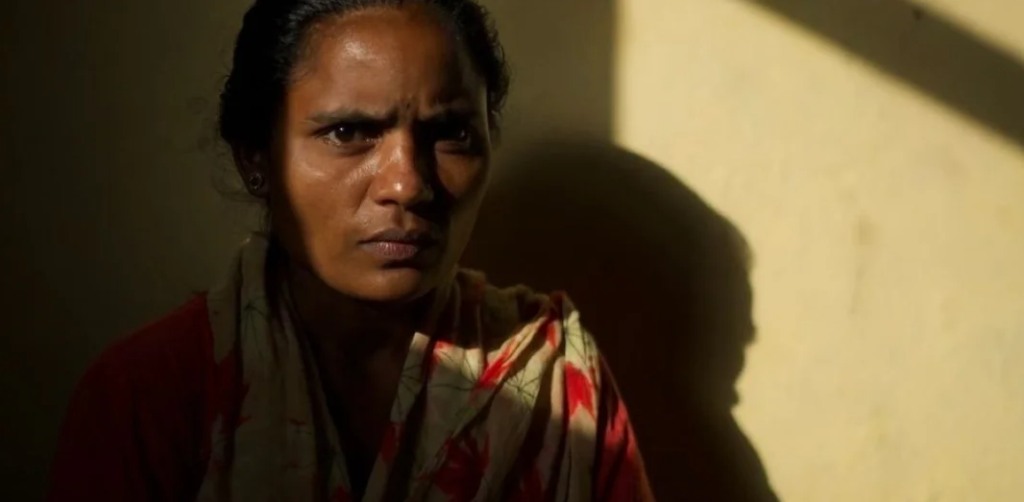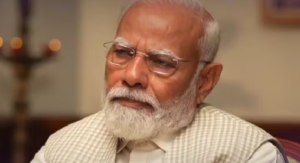On June 3, as 25-year-old tribal rights activist Suneeta Pottam was getting ready to get on with her day’s activities, the Bijapur police barged into her house, locked the two other activists present there in one room and dragged Pottam along with them.
Originally from Korcholi village in Chhattisgarh’s Bijapur division, Pottam has been living in Raipur, the state’s capital, with the hope of finally completing her matriculation.
Pottam, like most other youth from the region, had to abruptly drop out of school when their schools were converted into camps for the Salwa Judum, a state-backed anti-Maoist militia, over a decade ago.
A vocal rights activist who has been travelling to different parts of the country and participating in press conferences and other public meetings, Pottam has been designated a “wanted accused” in many cases.
On her arrest on June 3, Pottam was produced before a magistrate in Bijapur and later sent to the Jagdalpur central jail.
While the police didn’t make clear the grounds of Pottam’s arrest, rights activists said the police mentioned five cases – four from Mirtur and one from Bijapur Kotwali. So far, the police have not sought Pottam’s custody under the draconian Unlawful Activities (Prevention) Act.
The police, on her arrest, claimed that there were 12 cases pending against her, the details of which are known neither to Pottam nor the lawyers’ group that is working for her release.
In Chhattisgarh, arrests of both tribal villagers and activists are very common. These arrests are seldom carried out following the due process of law. So it was in the case of Pottam, who at the young age of 17 moved the Supreme Court against the extra-judicial killings of six persons in the Kadenar, Palnar, Korcholi and Andri villages of Bijapur district.
As the Bijapur police dragged Pottam out of the house, her colleague from the People’s Union for Civil Liberties (PUCL), Shreya Khemani, reached the scene.
Khemani said that despite her efforts, the police refused to provide the reasons for Pottam’s arrest.
“Deputy superintendent Garima Dadar had come along with a huge pile of papers. When asked for a warrant or notice, she pointed to the papers,” Khemani said.
As Pottam was taken away, Khemani noticed the police vehicle didn’t have a number plate.
Pottam, along with the PUCL, has also been a member of the national-level organisation Women Against Sexual Violence and State Repression since 2015.
Other activists who have travelled across the state as part of various fact-finding activities attest to Pottam’s multiple appearances in public – yet the police call her an “absconding accused”.
This is not the first time Pottam has come under the police’s radar. In 2015, as extra-judicial killings in Bijapur district were on a rise, in Pottam’s own village, a young man was killed, a young mother was raped and three minor girls were sexually molested.
Pottam, as a Hindi-speaking young girl, had moved the courts against the atrocity. She and another human rights defender, Munni Pottam, were both singled out and harassed by the state police and security forces for taking the matter to court.
Later, along with other youth Adivasi rights activists, Pottam was detained following the intense agitation at Silger village in Sukma district in 2022.
On January 1 this year, when a six-month-old was among the six killed in police firing in the remote Adivasi village of Mutvendi in this southern Chhattisgarh district, Pottam was among the few activists who spoke out against the indiscriminate firing.
As the violent killings gained traction, Pottam was soon on the state police’s radar.
On February 9, when Pottam was in the Bijapur district hospital to help some villagers who had met with an accident in the Gangalur area of Bijapur, she was chased on the main road by policemen, who tried to forcefully take her with them on their motorcycle.
She ran into local journalists, who had halted at a shop close by, and they intervened.
Pottam is an established fighter and garners immense popularity and support among local Adivasis and activists. This attempt to chase her on a bike and forcibly try to abduct her was brought to the notice of Bastar’s inspector general of police, P. Sunderraj.
On February 17, human rights defender Bela Bhatia, tribal rights activist and teacher Soni Sori and PUCL member Khemani met Sunderraj and apprised him of the police’s ongoing harassment. Pottam addressed a press conference on the same day.
“Then where is the question of her being an absconding accused?” Sori asked.
Pottam’s arrest, although disturbing, is not a unique case, said human rights lawyer Xitiz Dubey. In March 2021, another forest rights and prisoners’ rights activist, Hidme Markam, was whisked away in an almost identical way from a public event commemorating International Women’s Day in Sameli village, in the conflict-torn Dantewada.
Hidme too was shown as an accused in multiple terror and murder cases. Eventually, Hidme was acquitted of all charges.
“But only after she spent over 23 months in jail. And Hidme was still lucky to be out of jail in two years. It has taken us decades in some cases to prove their [falsely implicated activists’] innocence,” Dubey said.
Like Pottam, the Bijapur police is also believed to be after other youth activists of the Mulnivasi Bachao Manch, a locally formed group that has been actively speaking up against state repression and the rampant and forceful setting up of a Central Reserve Police Force camp in villages across the Bastar police range.
Pottam was arrested in Raipur, taken to Bijapur thana (the jurisdiction under which her village falls) and then taken away to Jagdalpur jail, which is 150 kilometres away from her village.
Days after her arrest, Pottam’s mother and younger brother travelled from the remote Korcholi village to meet her. The trip, Sori said, was a difficult one.
“Her mother had a severe infection in her foot. Still, she walked over 20 kilometres, halted for a night on the road, changed three means of transport and reached Jagdalpur.”
The mother had carried dried mangoes and other preparations for Pottam. “The jail authorities denied her permission [to give them to Pottam],” Sori, who had accompanied the family to the jail, said.
(Courtesy: The Wire, an Indian nonprofit news and opinion website. It was founded in 2015 by Siddharth Varadarajan, Sidharth Bhatia, and M. K. Venu.)




